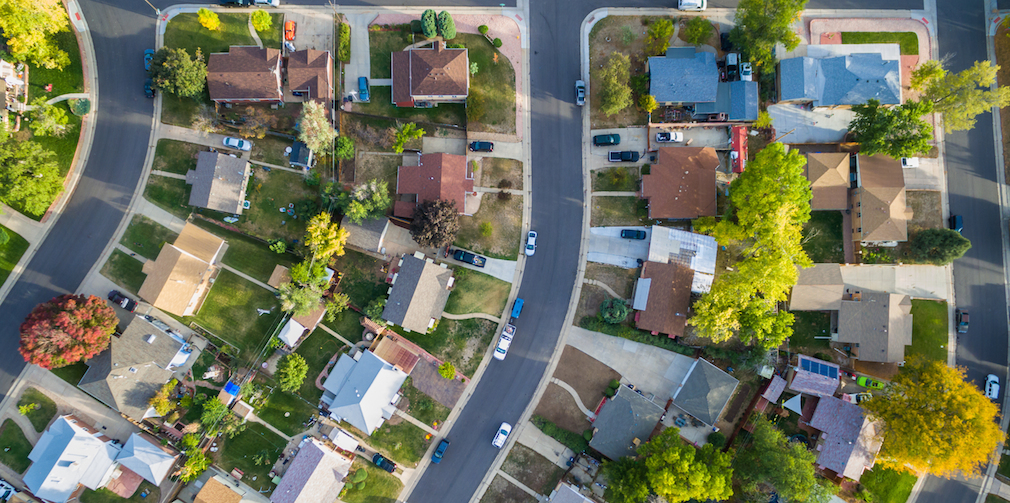After you’ve moved into the home of your dreams, your work doesn’t stop there. The next step you have to take is to find out who your neighbors are and if the area is safe. For example, you may be living next to an incredibly friendly family, but there will always be less desirable neighbors along your block. If you are asking yourself, “who are my neighbors?” consider following these seven tips.
1. Look for Unkempt Property
The first thing to do is to check for common signs of neglect, such as garbage piling up, uncut grass, or cluttered yards. However, you should also take a look at the homes around yours as well, not just your neighbors. If you notice that they may be a bother in your neighborhood, mark that as a big, red flag.
2. Use Your Observational Skills
The last thing you want to listen to is noisy parties on the weekends. However, bad neighbors also neglect their property and have zero consideration for other people. Just keep in mind that if you’re moving to a college area, your neighborhood is prone to late night parties and loud music, which can ruin your personal life. Throughout the day, you should check out your neighborhood beforehand to see if you can spot any troubled neighbors that you might have to report for excessive noise.
Common signs of a troubling neighbor usually have lots of cars parked outside their home and recliners or sofas on their lawn or front porch. A bad neighbor might also neglect their pets, so be on the lookout for barking dogs as well.
3. Learn Your Neighbor’s Name
It’s not uncommon to forget or simply not ask for your neighbor’s name. However, it’s important that you get familiar with the families that live in your area. But, you can always get their name off WhitePages if you’re not interested in getting too personal. WhitePages can also offer more detailed reports with criminal and bankruptcy records, as well as other information. You can also conduct a people search for free.
4. Perform a Criminal Check
Unfortunately, there are a lot of sex offenders openly roaming the streets, possibly even your own neighborhood. Unlike criminals, sex offenders get to experience public life, but they do get placed in a registry that you can look up. One of the best services we can suggest is Family Watchdog. All you have to do is enter the ZIP code or street address and let Watchdog generate a map with marked sex offenders in your area. From there, you can click on each individual marker to get more information on the sex offender.
5. Use NextDoor
For those who do not know, NextDoor is a social media platform that allows you to connect with the other people in your neighborhood. This app is especially popular in areas where neighbors typically do not know each other. On this site, neighbors can share events, news, and recommendations for others in their neighborhood. NextDoor is like a digital bulletin board for all the neighborhood going activity. This site is great for everything from discussing block parties to school updates to posting about a missing pet.
Additionally, this site can help increase neighborhood security. Neighbors can warn each other about vandalism and burglaries in the area. Create an account using the address of your new home and learn all about the inner workings of your new neighborhood. You can also learn a lot about the personalities of the people who are posting. Hear all about the interests, concerns, and complaints of the people who actually live in your new neighborhood.
6. Check for Foreclosures and Empty Buildings
Vacant buildings and homes in foreclosure also tend to make bad neighbors. These properties can bring down property values in the whole neighborhood. Do a quick online search for foreclosed homes in the area and drive by them to view their condition. Check for exterior damage, graffiti, and overgrown lawns. When determining how to spot bad neighbors, look for empty commercial buildings too. These buildings are not indicative of a thriving or growing community.
7. Beware City Services
Bad neighbors aren’t always individuals, sometimes they can be city services as well. If your dream home is located close by to a landfill or power plant, you could have difficulty selling it when the time comes. Houses that are located close to city services are usually valued six to 10 percent less than they would be in other locations.
You should also watch out for light pollution from a nearby prison or power plant. This can make these city services undesirable neighbors as well. Even though these are important services, many people do not want to live close to them. Try to avoid buying a new home near one of these services.

